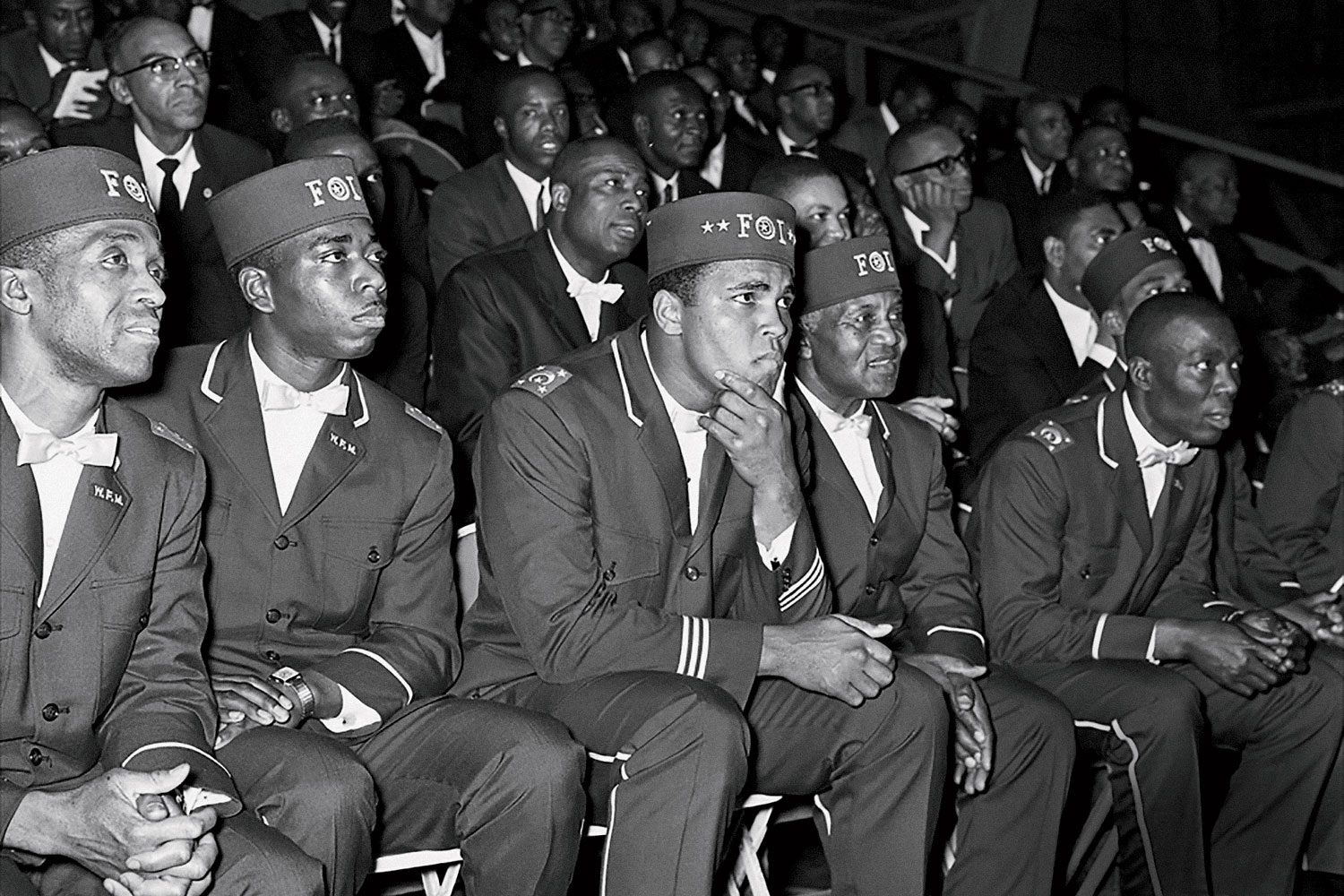1Chicago was where Cassius Clay, ahem, became a man. In 1958, at 16, he visited for the Golden Gloves tournament. The night before the semifinals, he asked a cabby to take him to find prostitutes. They found them at the corner of 47th and Calumet. For $9, a woman offered a room and a “trip around the world” (that is, a little bit of everything), and Clay lost his virginity. He also lost his match.
2On a return trip in 1959, he heard a recording of Louis Farrakhan singing “A White Man’s Heaven Is a Black Man’s Hell”—Muhammad Ali’s introduction to the Nation of Islam. For years, the Nation, which opposes frivolous sport, tolerated his boxing, presumably because it made money for the group and drove recruitment. But in 1969, during the fighter’s suspension for draft dodging, Elijah Muhammad banned Ali from the Nation and stripped him of his Muslim name (which Ali ignored) after Ali told Howard Cosell that he wanted to return to the ring to make more money—a sin in the Nation’s eyes.
3Some of Ali’s four wives overlapped in spiritual marriages, if not legal ones. At various points, he lived with multiple women, even referring to a mistress as his wife while meeting Filipino dictator Ferdinand Marcos. Pseudopolygamy wasn’t harmony. Wife No. 3 suspected wife No. 2, who once worked at Shabazz Restaurant on 71st Street, of poisoning her.
4For years, questions of a fix have plagued Clay’s 1964 upset of Sonny Liston that first made him heavyweight champ. Eig uncovered new evidence in a memo that circulated within Clay’s camp that Liston had a financial incentive to take a dive. Liston’s people paid Clay and his sponsors $50,000 for the rights to Clay’s next fight—including the power to name his opponent, which guaranteed a rematch.
5Ali regretted one of his most famous statements: “I ain’t got no quarrel with the Viet Cong.” He was proud he resisted the draft but sorry he upset so many people. Eig writes: “He loved being loved more than he loved being admired.”




